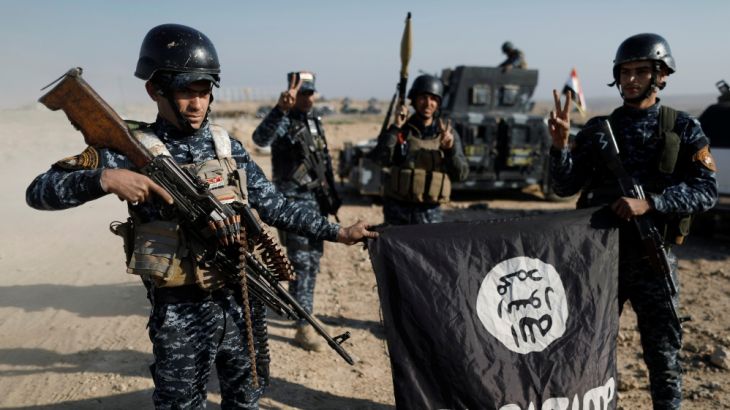
What happened to ISIL? An UpFront special
We discuss the group’s past, present, and future.
Four years after the Islamic State of Iraq and the Levant group (ISIL, also known as ISIS) seized large areas in Iraq and Syria, it appears the group has been defeated militarily, and has now lost 99 percent of the territory it once controlled.
According to a University of Maryland study, 2017 was the third consecutive year in which the number of “terrorist” attacks around the world went down.
Keep reading
list of 4 itemsMoscow theatre attack suspects show signs of beating in court
Four men showing signs of severe beating charged over Moscow concert attack
Russia mourns Moscow concert hall attack victims as death toll rises to 137
In this special UpFront discussion, we look at the current status of ISIL, why the media have generally decreased its reporting on it, and whether the group still poses a risk.
John Mueller, a professor of political science at Ohio State University and author of Overblown: How Politicians and the Terrorism Industry Inflate National Security Threats, and Why We Believe Them, points out that the number of people killed by ISIL in the US is about six a year.
“In a lot of ways, it doesn’t really present a threat to the United States or to Western Europe,” says Mueller.
“This is an actual threat to some governments, but … not to the American government,” says Mia Bloom, a professor at Georgia State University and author of Dying to Kill: The Allure of Suicide Terror. “We are largely ignoring places like Nigeria, where the attacks have actually gone up, or places like Southeast Asia. In Indonesia or the Philippines, we really have to be concerned.”
Renad Mansour, a fellow at the American University of Iraq, Sulaimani and a Middle East research fellow at Chatham House, regards ISIL as a “symptom”: “Many local-minded Iraqis and Syrians are entertaining the ideas of groups like [ISIS] because of more socioeconomic reasons, not necessarily the idea of ISIS.”
When asked about threats posed by so-called returnees – ISIL fighters who left warzones and returned to Western countries – Nicolas Henin, a former war correspondent and former ISIL captive, says he’s more worried about people who “still have a dream of a caliphate” and have been prevented from joining ISIL.
The author of Jihad Academy: The Rise of Islamic State, Henin, says that most of those who went to fight with ISIL ended up disillusioned.
In this UpFront special, we discuss the past, present, and future of ISIL with Mia Bloom, John Mueller, Renad Mansour and Nicolas Henin.
Follow UpFront on Twitter @AJUpFront and Facebook.